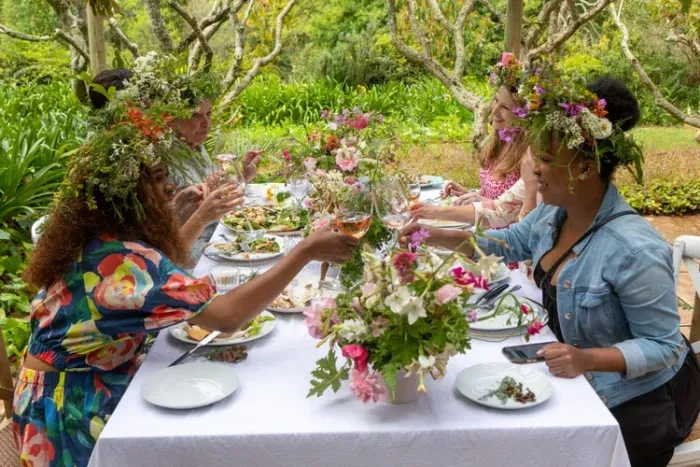A gardener's guide to low and high maintenance plants

Happy National Garden Day, in South Africa. Celebrate your garden today.
Image: Supplied/ Garden Day
Gardening, like growing a pet or a child, takes dedication, focus, and time. Plants are living entities that require adequate room, water, sunlight, and, in many cases, human involvement to flourish.
However, not all plants require the same amount of attention.
While some require constant monitoring, pruning, and fertilization, others are far more forgiving and can thrive with little care, as long as they are planted in the right region and conditions.
Understanding whether plants require high or low maintenance can help gardeners make wiser decisions, particularly in places like KwaZulu-Natal, where subtropical conditions play an important impact on plant success.
High-maintenance plants
These plants demand more consistent care, particularly when growing outside of their ideal circumstances, example of fruit trees are peaches, apples, pears, and plums. These deciduous trees flourish in milder climes and require a certain number of chilling hours each winter to blossom and fruit appropriately.
In warmer climates, such as parts of KwaZulu-Natal, these trees may suffer unless planted in cooler interior areas and constantly monitored for pests and diseases.
Climbing fruits such as passion fruit, granadilla, grapes, kiwifruit, choko, and blackberries require more care. These plants must be trained along trellises or wires, thrive in full light, and benefit from annual trimming to control their development and enhance fruit production.
Exotic fruits like dragon fruit (pitaya) demand secure spaces with well-drained soil. Overwatering should be avoided because it can promote root rot. Similarly, herbs like basil and rosemary are susceptible to excessive wetness and require continuous monitoring to avoid disease and retain their flavor and scent.
Roses are recognized for their beauty, and yet they are also difficult to care for. They require regular trimming, fertilization, and insect control. Other flowering plants, such as hybrid tea roses, lavender, wisteria, dahlias, and azaleas, require regular watering and annual deadheading or pruning to remain healthy.
Even mint, which is commonly regarded as easy to grow, can become invasive if not adequately contained due to its underground runners.
Low-maintenance plants
On the other hand, certain plant species take less effort and are suitable for persons who are not always accessible to tend to their garden. These plants are often drought-tolerant, pest-resistant, and can adapt to a variety of situations.
Indoor plants that are very hardy include aloe vera, ZZ plants, snake plants, spider plants, and succulents. These plants require little watering—sometimes as little as once a month—and may endure low light levels well.
Philodendrons, pothos, Swiss cheese plants, and cast-iron plants require only weekly watering and are ideal for interior environments. However, pet owners should use caution, as some of these are poisonous if consumed.
Lucky bamboo is another great low-maintenance alternative. It can grow in water without soil and requires little maintenance, only a water change every few weeks and positioning in indirect sunshine.
Low-maintenance flowers like Shasta daisy, coneflower, coreopsis, and hardy hibiscus grow in full sun and require just occasional watering. These blooms also attract pollinators like butterflies and hummingbirds, which helps increase biodiversity in the garden.
Lilies are also relatively low-maintenance; they love sunny areas and require minimal watering to avoid excess dampness.
Once established, many fruit trees become self-sufficient. Mango, banana, avocado, pineapple, and guava trees thrive in the subtropical environment of KwaZulu-Natal. Once grown, these trees usually only need to be pruned and harvested occasionally. Other crops suitable for the region include macadamia nuts, litchis, pomegranates, and a variety of citrus fruits.
Choosing the appropriate plants based on maintenance requirements and local climate can lead to a more successful and sustainable garden. While some species require constant care and supervision, others thrive with little attention. Whether for food production, landscaping, or indoor decor, there are solutions for any gardener, regardless of experience or availability.
Get your news on the go. Download the latest IOL App for Android and IOS now
Related Topics: